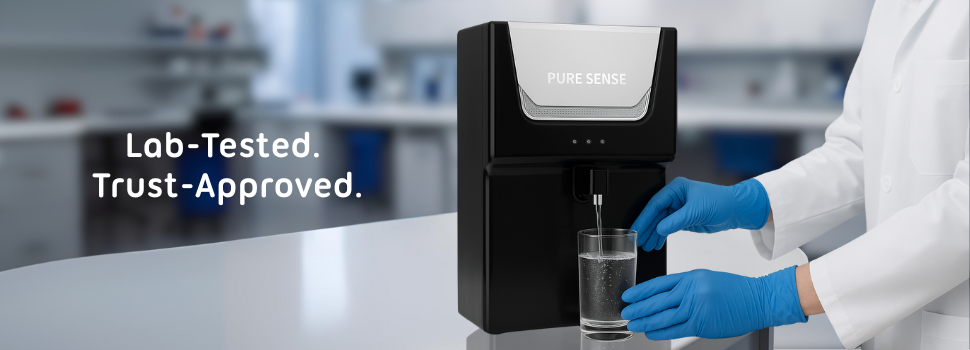
Nano Filter vs. RO Water Purifiers: Which Is Better for You?
Share
As concerns about health and sustainability intensify, choosing the right water purification system has never been more critical. While Reverse Osmosis (RO) purifiers have long been a household staple, Nano filter water purifiers—also known as NF water purifiers—are emerging as a superior alternative. Let's explore how Nanofiltration water purifiers (NF purifiers) stack up against traditional RO systems across key parameters.
1. Filtration Precision & Mineral Retention
RO Water Purifiers use ultra-fine membranes to eliminate nearly all dissolved contaminants, including essential minerals. Nanofiltration water filters operate with slightly larger pores that effectively remove bacteria, heavy metals, pesticides, and organic compounds—yet retain healthy minerals like calcium and magnesium. This makes Nano water purifiers a healthier alternative.
2. Operating Pressure & Energy Efficiency
RO systems demand high water pressure to function efficiently, leading to increased electricity usage. NF systems, in contrast, operate at lower pressures, resulting in reduced energy consumption and running costs.
3. Water Waste & Environmental Impact
RO purifiers are known for wasting 3–4 liters of water for every 1 liter purified. NF water purifiers offer better recovery rates, generating far less wastewater and making them more sustainable and eco-friendly.
4. Cost & Maintenance Considerations
RO systems tend to be more expensive both in terms of initial cost and maintenance. NF water purifiers are typically simpler in design, making them more cost-effective in the long run.
5. Best Use Cases
RO purifiers are ideal for highly contaminated water with very high TDS levels. Nano filter water purifiers are best suited for homes with moderate to high TDS levels, offering a balanced solution that preserves minerals while purifying water effectively.
Summary Table
| Feature | RO Water Purifier | Nano Filter (NF) Water Purifier |
|---|---|---|
| Pore Size | ~0.0001 µm | 0.001–0.005 µm |
| Mineral Retention | Removes all | Retains healthy minerals |
| Operating Pressure | High (3–4 MPa) | Low to moderate (0.5–2.5 MPa) |
| Water Waste | High | Much lower |
| Energy & Running Cost | Higher | Lower |
| Use Case | High contamination, high TDS | Everyday use, balanced water needs |
Why Nano Water Purifiers Are Gaining Ground
In environments like India—where water sources vary in composition and quality—Nanofiltration water purifiers are increasingly viewed as smart, practical solutions. They strike a healthy balance: efficient contaminant removal, mineral retention, lower operational costs, and minimal environmental footprint. Add optional UV layers to create an NF UV water purifier, and you get robust microbial disinfection with smart, layered protection.
Final Verdict
If you're seeking a water purifier that delivers safe, healthy hydration without waste or complexity, a Nano water purifier with nanofiltration (and optionally UV) technology is an excellent choice. It's efficient, sustainable, and built for modern lifestyles—making it the forward-looking option for many households.
